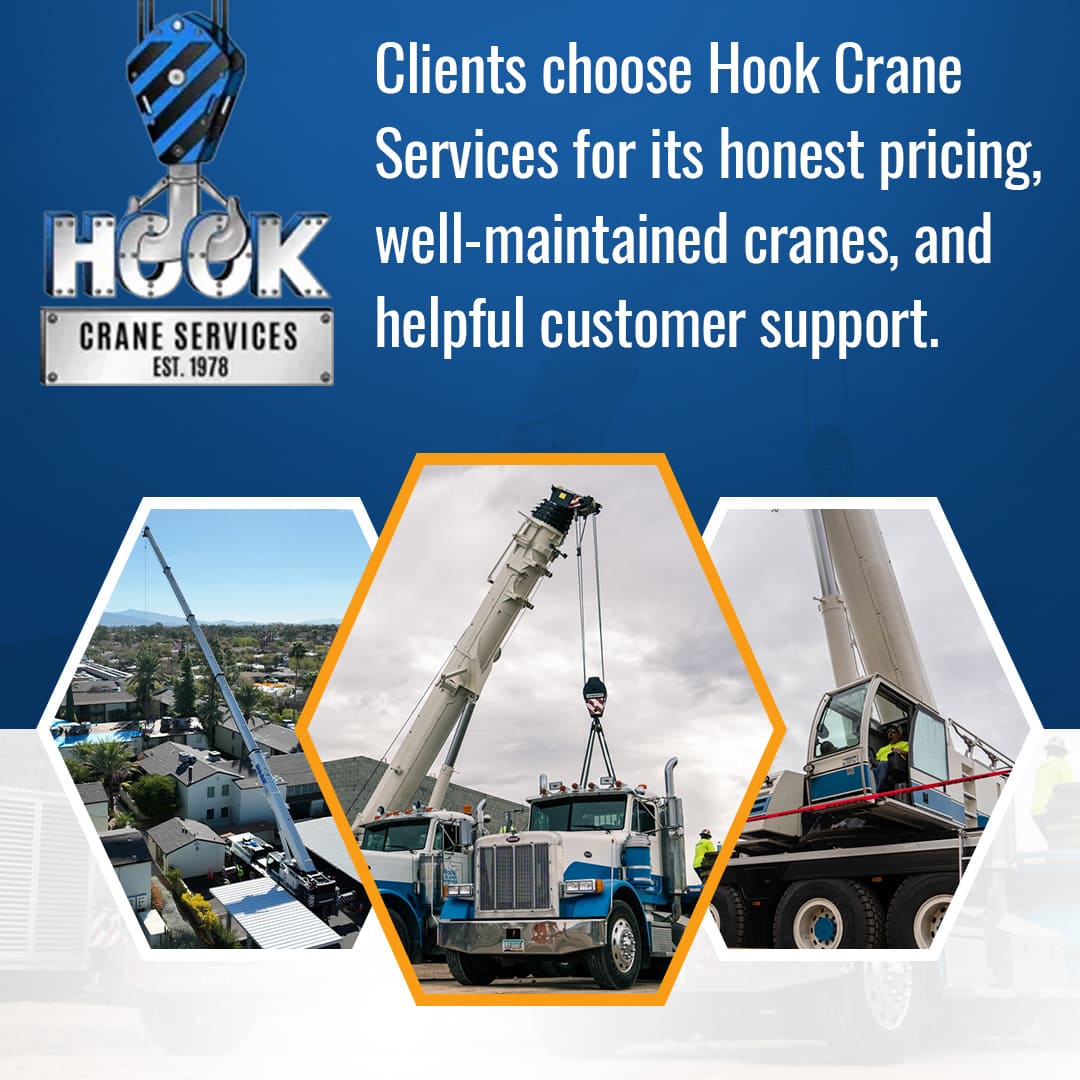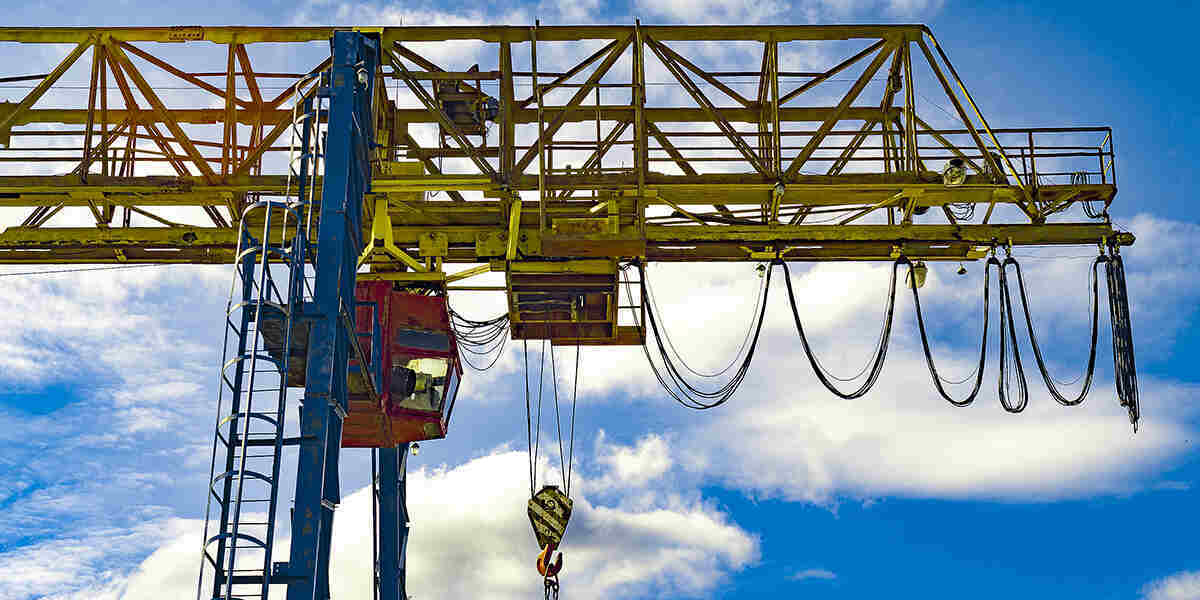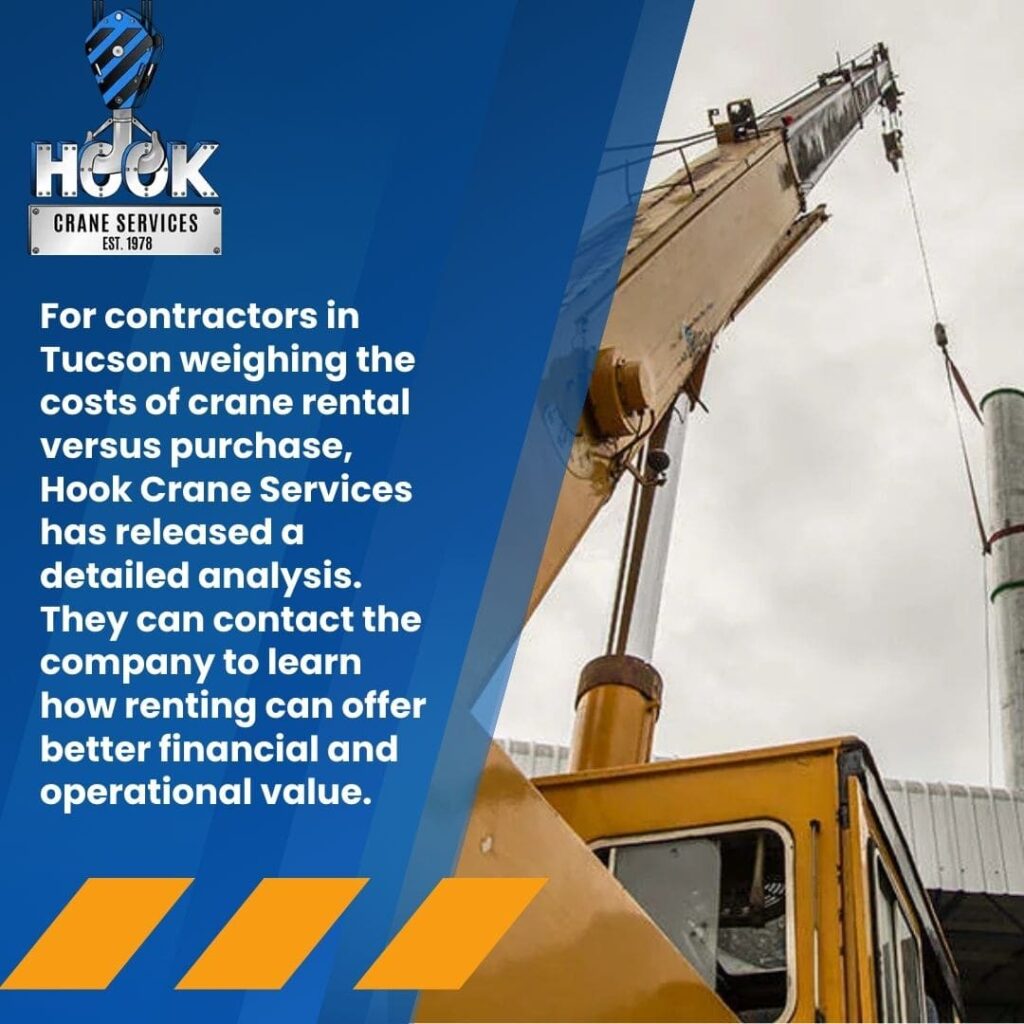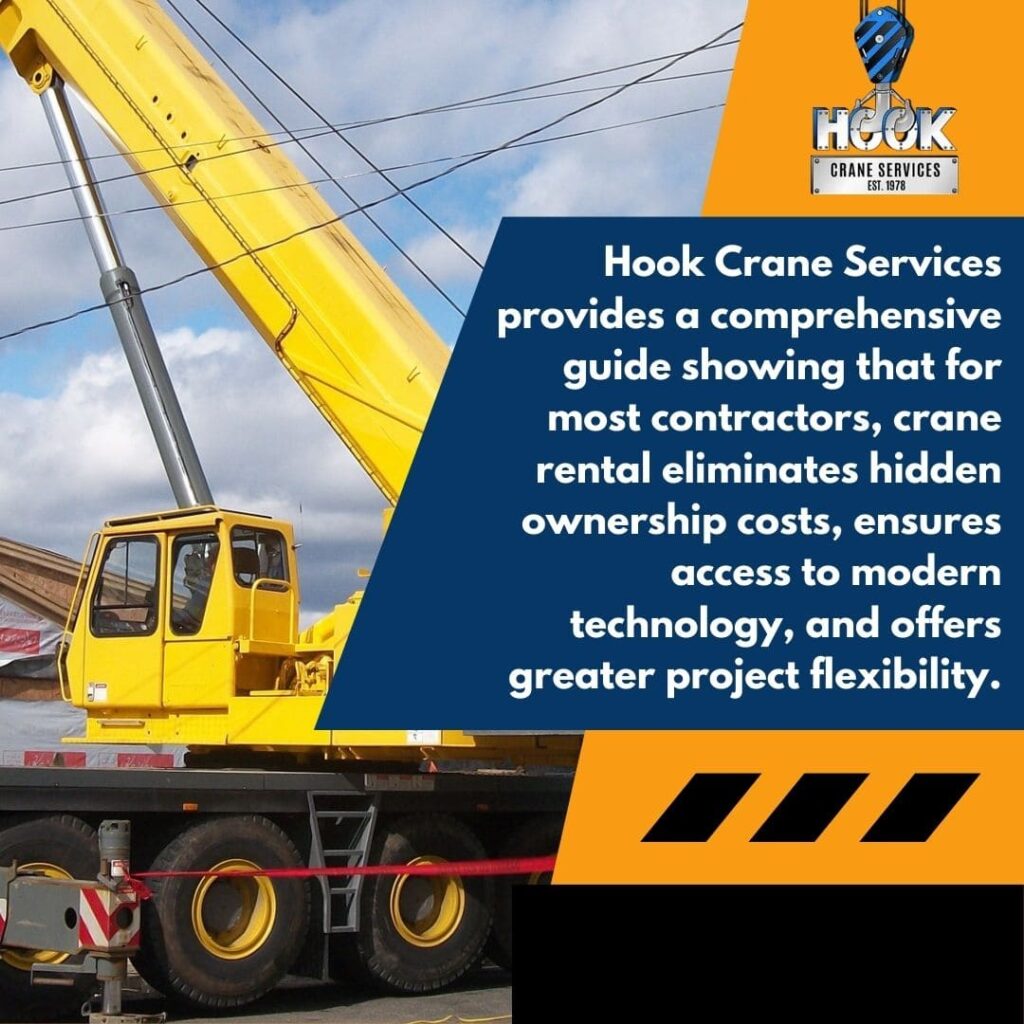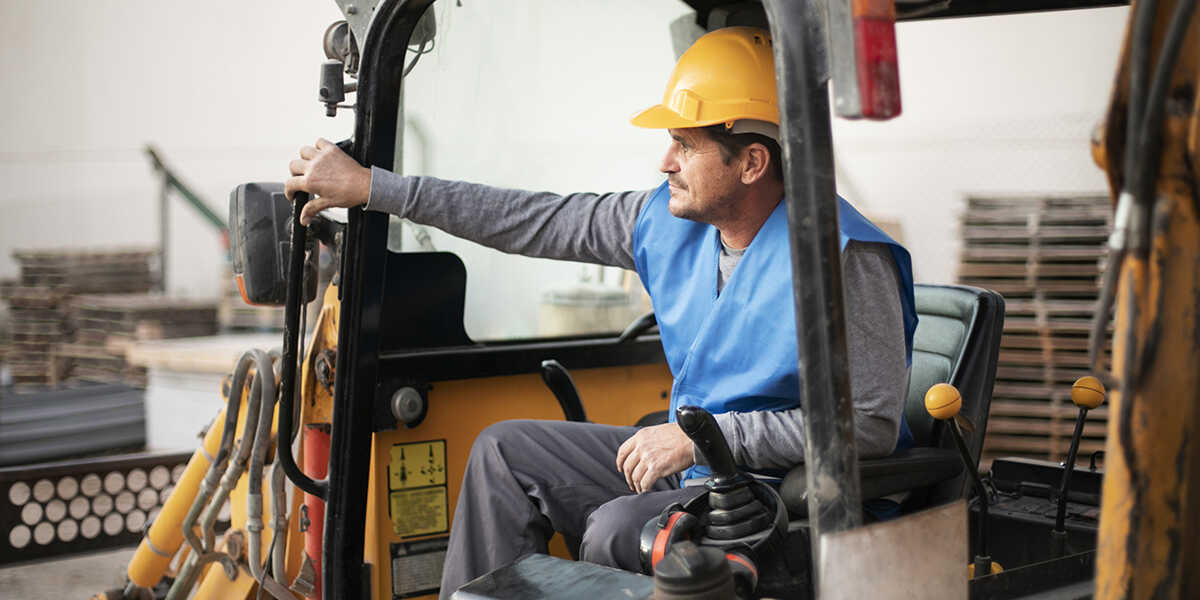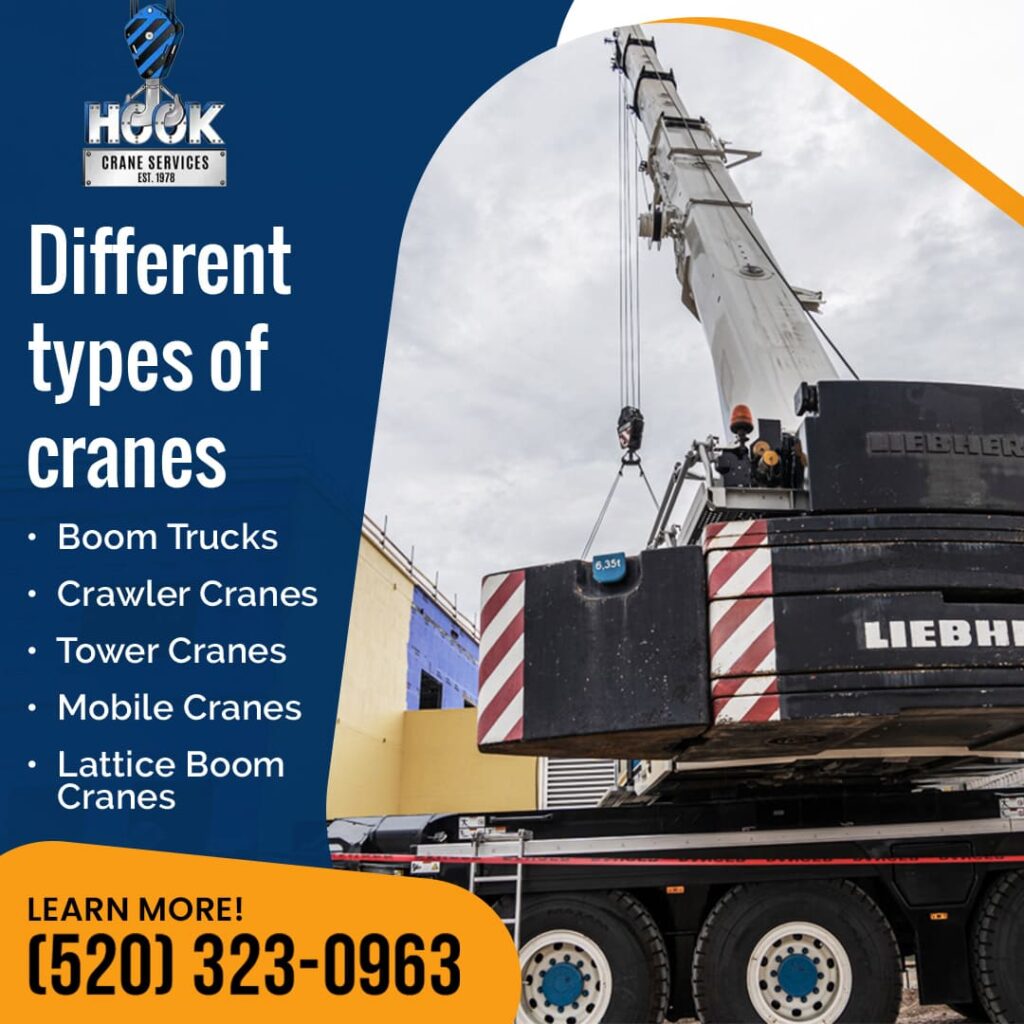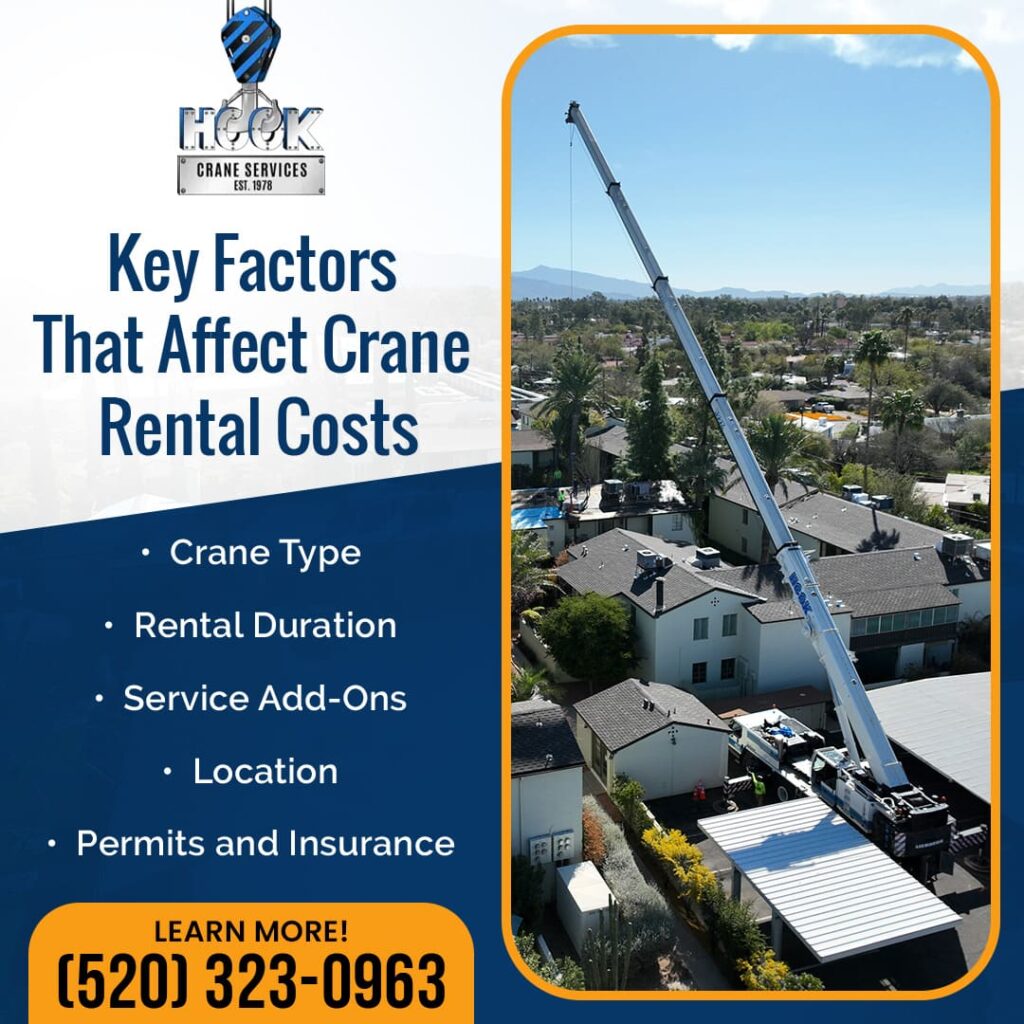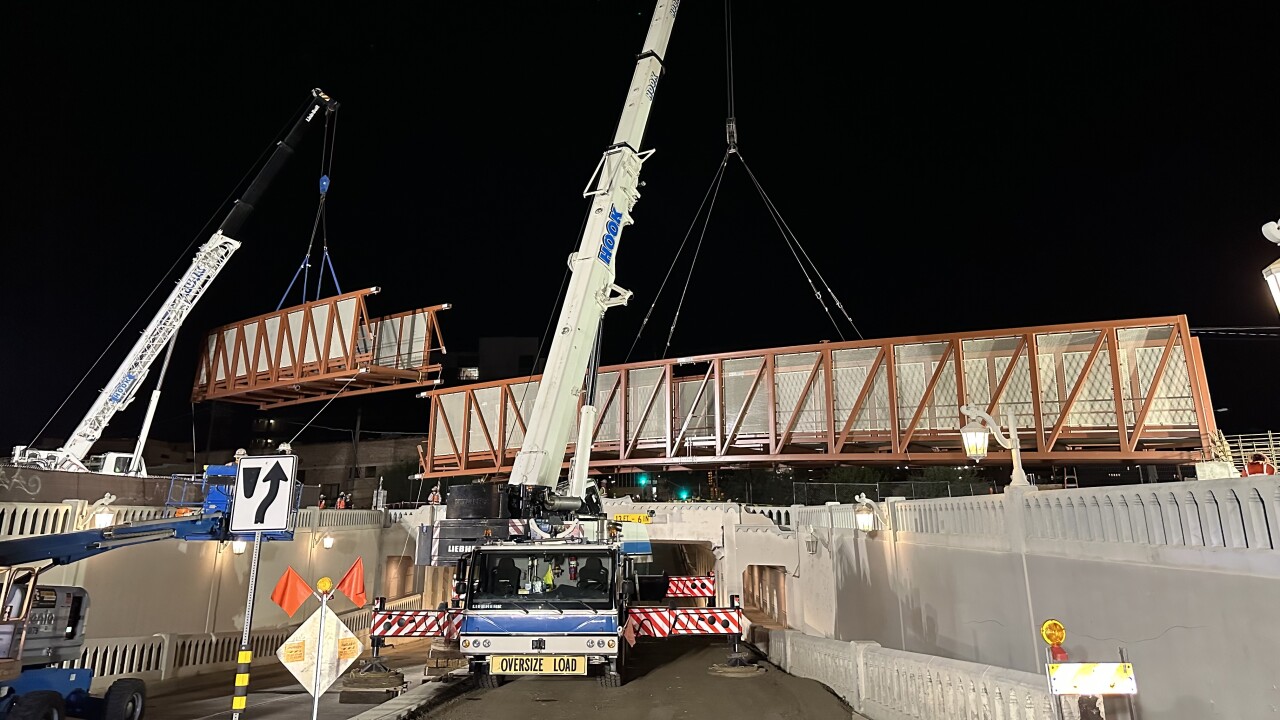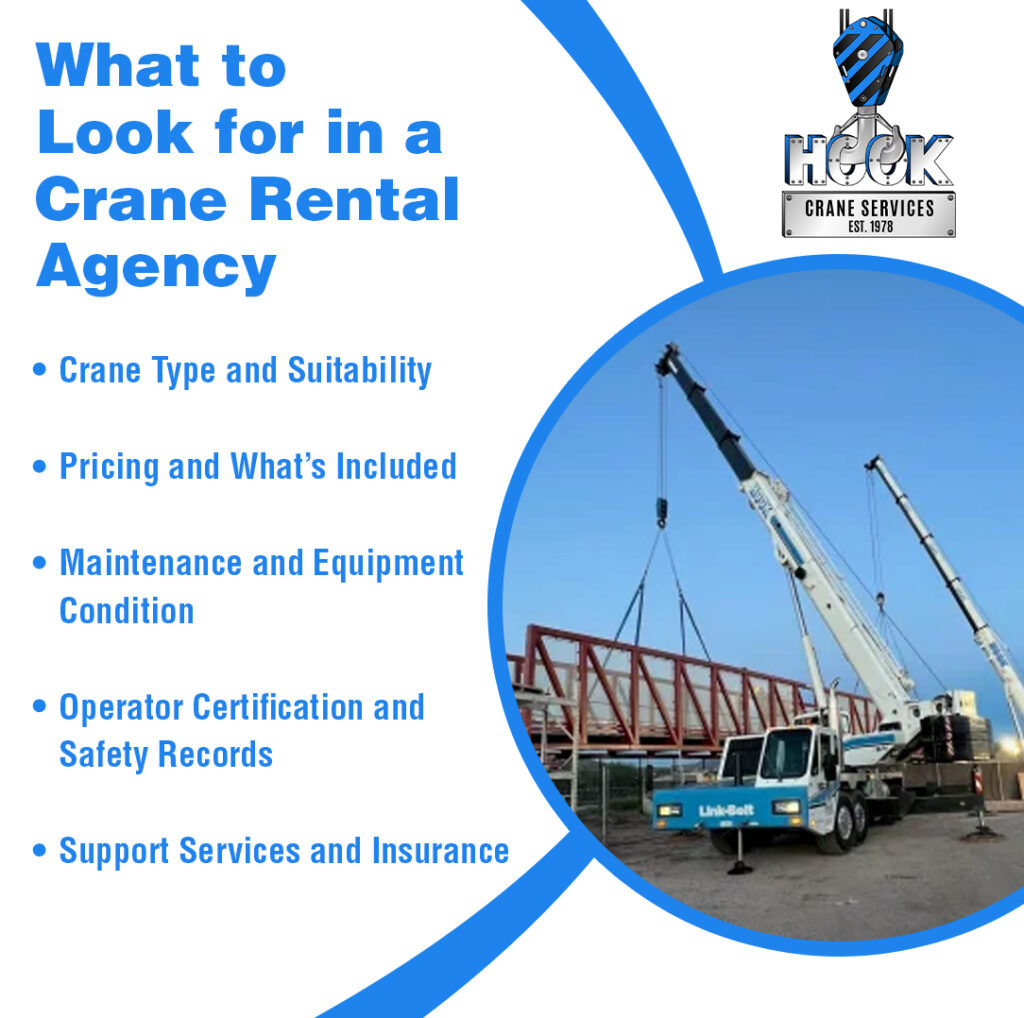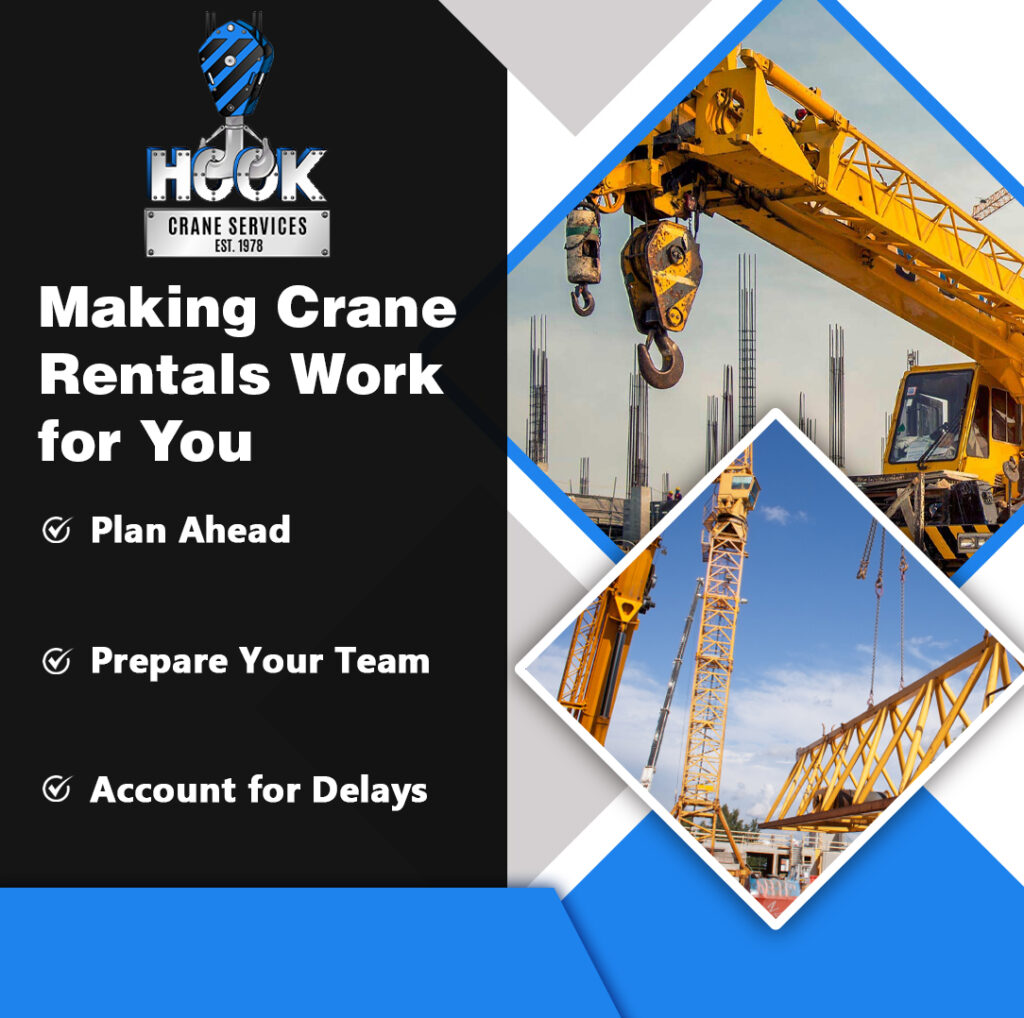Uncovering Crane Rental: Essential Hidden Fees You Need to Know Before Your Project
What hidden fees could impact your crane rental budget, and how can project managers avoid them? Across Arizona construction sites, overlooked rental charges often lead to schedule disruptions and inflated costs. While hourly or daily rates are usually clear in quotes, the true project expense frequently rises due to factors like travel charges, standby time, extra rigging, or permitting delays. These costs are not always listed upfront, yet they directly affect a contractor’s ability to control job timelines and stay within budget. Hook Crane Services – Crane Rental, a trusted crane services company based in Tucson, helps clients anticipate these issues by promoting transparent and predictable rental terms.
Contractors and project leads face growing pressure to complete lifts on time while managing costs under strict client expectations. When rental providers fail to disclose additional fees, it puts general contractors, builders, and site supervisors at a disadvantage. From long mobilization distances to minimum hour requirements, many of these costs appear after the job is underway—when options are limited. The purpose of this guide is to help stakeholders understand where hidden fees typically arise so they can ask the right questions and select crane rental partners who align with project goals and budget accuracy.
What is Crane Rental?
Crane rental refers to the temporary use of lifting equipment for construction, industrial, or residential projects. It enables contractors and project managers to move heavy materials efficiently without the capital expense of owning a crane. Reputable crane service companies offer a variety of crane types, along with transport logistics, certified operators, and job-specific rigging support to meet the unique demands of each project.
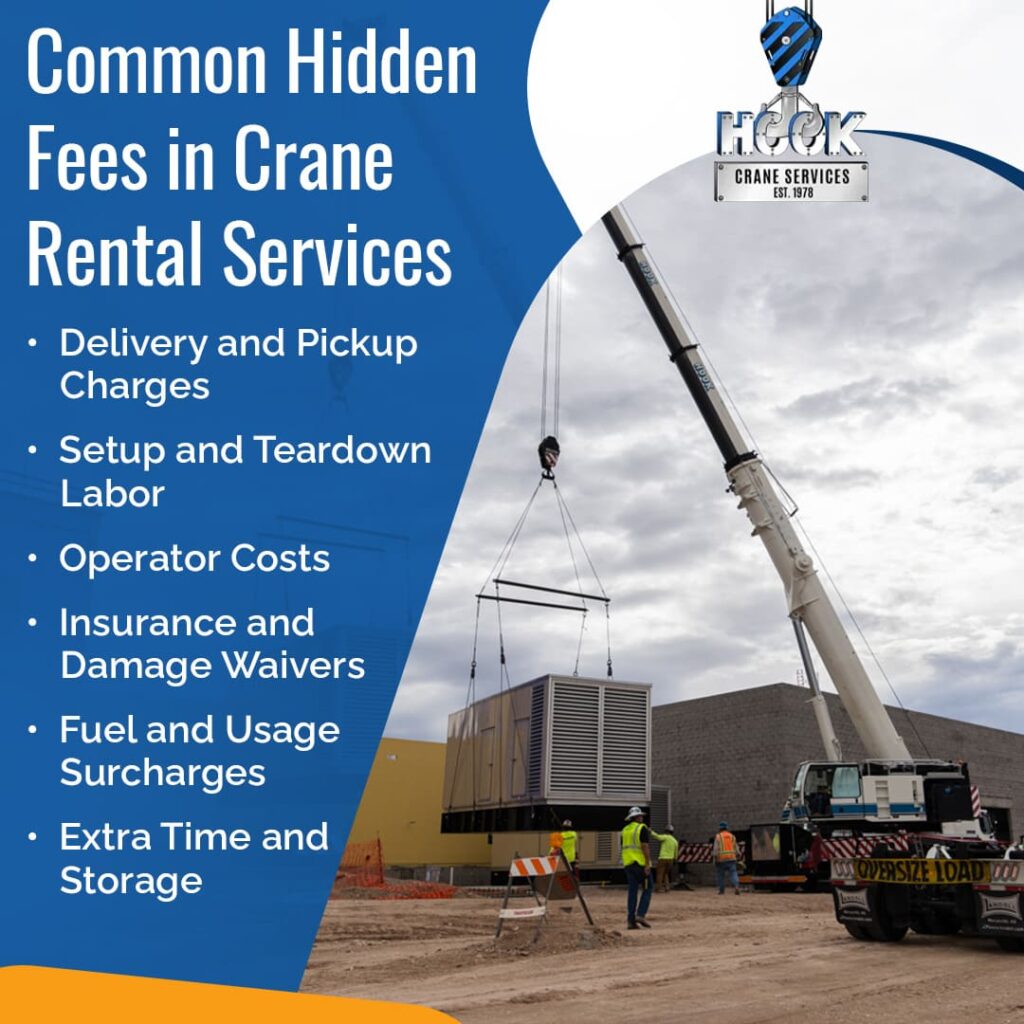
Common Hidden Fees in Crane Rental
Being aware of the potential hidden costs associated with crane rental can save you time and budgetary stress. Here are some of the fees you might encounter:
1. Delivery Fees
Most crane rental agreements do not include transportation costs. Delivery and pick-up charges can vary substantially based on the distance from the crane rental agency’s yard to your job site. Depending on the location, these fees can add a notable amount to your overall rental cost.
Some agencies may charge a flat fee, while others may base their fees on mileage or the size of the crane being delivered. Be sure to ask your crane rental agency about these costs upfront to avoid surprises when you receive your bill.
2. Setup and Disassembly Costs
Setting up and disassembling a crane is a complex process that requires skilled labor. Many rental contracts include additional charges for these services, which can range from several hundred to thousands of dollars based on the type of crane and complexity of the assembly. This includes ensuring that the crane is properly configured for the job at hand, along with any special rigging required for specific tasks.
If your project has unique specifications, anticipate that setup and disassembly may incur higher-than-standard fees. Always get clarification on these charges before signing the rental agreement.
3. Equipment Insurance
Some crane rental agencies require you to take out insurance that covers damages to the crane while it is in your care. This insurance is typically in addition to your general liability coverage and can contribute greatly to overall costs. Coverage may include issues such as damage from accidents, theft, or vandalism.
The cost of insurance can vary based on the crane’s value and the extent of coverage needed, so it’s important to discuss your options with your insurance provider and the rental agency to understand how this additional fee will affect your project budget.
4. Extended Rental Fees
If your project takes longer than anticipated, most rental agreements will charge daily or weekly fees for additional use beyond the original agreement. This is especially true if the crane is required for more than the standard rental period, which generally ranges from hours to a few days, depending on the agency.
Failing to return the crane on time can lead to increased costs and also to potential penalties if specified in the rental contract. To minimize extended rental fees, establish a realistic timeline for your project and communicate openly with your rental agency about any changes in needs.
5. Operator Costs
Using a crane typically requires a certified operator, which may not be included in the rental price. Experienced operators are necessary for the safe and efficient operation of cranes, and their daily or hourly rates can vary widely depending on experience and location.
Operator costs can considerably influence your overall crane rental expenses. It’s vital to confirm whether these charges are part of your rental agreement or if you must hire an operator separately. Clarifying this charge upfront will help you budget for labor costs accurately.
6. Fuel Charges
Fuel is one of the significant costs associated with crane operation. Some rental agencies may impose additional fees if the crane isn’t returned with the same amount of fuel that it was delivered with. This can lead to unexpected charges, especially if your project requires extensive operation of the crane.
To manage this effectively, keep track of fuel usage during the rental period and make sure that the crane is refueled before returning it. Knowing the fuel policies of your rental agency will help you avoid potential surcharges.
7. Damage Waiver Fees
Certain rental contracts may include an option to pay for a damage waiver that absolves you of financial responsibility for minor damages to the equipment. This fee can appear negligible initially but can add up, especially if you have multiple cranes on-site.
Although a damage waiver may seem like an unnecessary expense, it can offer added assurance by covering small damages that may occur during normal use, preventing substantial repair costs. Review the terms related to the damage waiver carefully and determine whether this option is suitable for your project.
8. Storage Costs
If your crane remains on-site beyond the rental period, many agencies will charge for additional storage. This cost typically applies to situations where rental extensions overlap with the normal operating hours of the agency. When a crane is not returned on time, the rental agency often incurs additional costs related to storage, preparation, and maintenance.
To avoid these fees, it’s advisable to plan your project timeline accurately and communicate with your rental agency well in advance if you anticipate needing the crane longer than originally agreed.
By identifying the hidden fees associated with crane rentals, you can create a more accurate budget and reduce the risk of unfunded expenses during your construction project. Always engage in open discussions with your crane rental agency to clarify all potential costs and achieve a smooth rental experience.
Identifying Your Crane Rental Needs
To make ideal decisions about crane rentals, it’s necessary to assess your project needs. Consider the following factors:
Project Scope
Before engaging a crane rental service, evaluate the overall scope of your project. It’s important to identify how many lifts you require, the height and weight of the loads, and the expected duration of the crane’s use. Comprehension of these details helps you determine the type of crane needed and also the operational time frame.
For example, if you anticipate multiple lifts or heavy loads, you may need to adjust your rental choice and the associated costs accordingly. Additionally, having a clear picture of the project scope allows for better communication with the rental agency, ensuring they can provide the appropriate equipment to fit your specific requirements.
Type of Crane Required
Different types of cranes are suited for various tasks, and not all cranes are created equal. Whether it be a tower crane, crawler crane, or boom truck, knowing which crane best suits your needs is vital for success.
For example, tower cranes are typically used for high-rise construction because of their ability to reach impressive heights, whereas crawler cranes are ideal for rough terrains where mobility and stability are necessary. A boom truck, on the other hand, is well-suited for jobs that require flexibility and the ability to maneuver in tight spaces. Selecting the correct crane type not only enhances efficiency but also impacts costs; the wrong choice can lead to project delays and increased rental fees.
Safety Considerations
Safety protocols should be a priority throughout the rental process. Familiarize yourself with the safety certifications of the operators and the safety practices of the crane rental agency. Make sure that the operators are certified by reputable organizations like the National Commission for the Certification of Crane Operators (NCCCO). It’s also worthwhile to inquire about the agency’s safety record and maintenance practices. Being aware of their approach to safety will give you confidence in their operations.
Additionally, ask about previous projects similar to yours that the agency has handled to gauge their reliability and experience in executing comparable tasks. A strong focus on safety protects workers on-site and safeguards the machinery and surrounding properties.
Taking the time to assess these key factors upfront helps avoid missteps and keeps your project on schedule. It also guarantees that you’re working with a crane rental company that meets both operational and safety expectations.
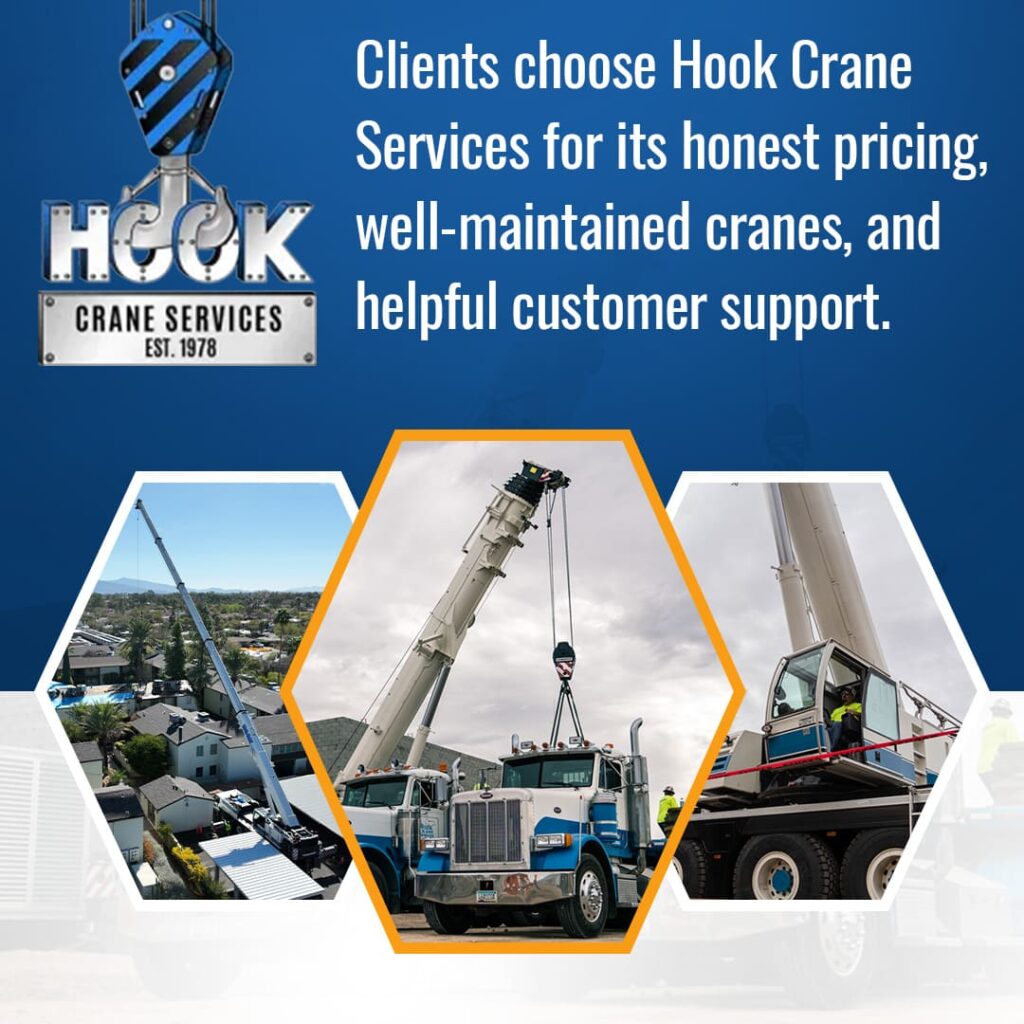
Choosing the Right Crane Rental Agency
Selecting the right crane rental agency can make all the difference in your project’s success. Here’s how to choose wisely:
1. Reputation and Reliability
Research local crane rental agencies by reviewing client feedback and testimonials, focusing on safety, reliability, and equipment condition. A strong reputation and proven track record increase the chances of smooth, on-time operations. Ask peers for recommendations to help identify trusted providers.
2. Fleet Variety
A diverse fleet shows a rental agency’s ability to meet specific project needs. Look for providers offering various crane types, such as tower cranes, crawler cranes, and boom trucks. This helps provide efficient, adaptable, and task-specific lifting solutions.
3. Transparent Pricing
Choose a crane rental agency with transparent pricing and clear rental agreements. Make sure that all costs, such as delivery, setup, operator fees, and insurance, are detailed upfront to avoid surprises and manage your budget effectively.
4. Customer Service
Opt for a rental agency with excellent customer service, including quick communication, clear guidance, and ongoing support. These qualities help create a smoother rental experience and lead to faster issue resolution during your project.
Selecting a reliable crane rental agency is necessary for project efficiency, safety, and cost control. At Hook Crane Services, we combine decades of experience, a well-maintained fleet, and dedicated client support to make sure that every lift is safe, efficient, and aligned with your project goals.
Advantages of Renting a Crane
Knowing the benefits of crane rentals is important in deciding whether to rent or buy. Key advantages include:
1. Cost Savings
Renting a crane eliminates the large upfront costs associated with purchasing equipment. It also reduces the responsibilities related to maintenance, storage, and depreciation.
2. Access to Latest Technology
Rental agencies often invest in newer equipment and technology, giving you access to advanced cranes without the financial burden of ownership.
3. Flexibility and Scalability
Renting allows you to adjust your equipment needs based on project demands. If a project expands or contracts, the flexibility of renting can be invaluable.
By leveraging crane rental services, construction teams can align equipment use with project timelines and budgets while benefiting from modern machinery and reduced overhead.
Crane Rental and Local Considerations in Tucson
Given that Hook Crane Services operates in Tucson, Arizona, recognizing the local context can be beneficial. Here are some local considerations:
1. Regional Regulations
Tucson may have specific regulations regarding crane operations that differ from other areas. Considering local compliance requirements is necessary when planning a project.
2. Weather Patterns
Tucson’s climate can influence crane operations and scheduling. Hot temperatures and seasonal rains can impact lifting conditions, so it’s wise to plan around these factors.
3. Availability of Local Resources
When searching for crane rentals near you, assess local resource availability, including skilled operators, support staff, and parts suppliers. Having nearby resources can reduce downtime and enhance productivity.
Taking these Tucson-specific factors into account helps improve planning accuracy, guarantees compliance, and minimizes project delays related to environmental or logistical challenges.
Transparent Rentals, Safer Projects
Recognizing the potential hidden fees related to crane rental can greatly impact the success of your project. At Hook Crane Services, we believe in providing transparent crane rental services that uphold the highest safety and operational standards. By doing your due diligence and assessing costs upfront, you can avoid surprises and make sure that your projects stay within budget.
If you are looking for reliable crane rental options, reach out to Hook Crane Services today. Our experienced team is here to provide the support and expertise needed to make your project a success.
Get in touch with us for more information or to request a quote; please call us at (520) 323-0963 or email hookcrane@hookcrane.com.
Let Hook Crane Services assist you in making your crane rental experience as seamless as possible. Together, we can build a safer and more efficient worksite for all.
